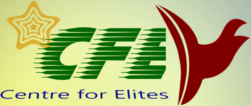The priest is the mediator between man and the gods (God). These are ministers in the temples, shrines, sacred groves and other religious centres. He may be set apart from birth or called to the service of the god. Both men and women are eligible. There are two types of priests among the people; the lay priest and the professional priest. The lay priest is the family head. He officiates at the domestic ancestral shrine. They consult the ancestors on behalf of the family or clan. Hence they link the living and the dead together. Priesthood in this category passes on to the most senior person in the family.
The professional priest is concerned with the cult of divinities. He succeeds the older priest at death or if the divinity chooses him as the next priest. This period of tutelage may last for several years. While in training, he undertakes a series of training in cult knowledge and performance of public rituals. He is also subjected to strict taboos.
He needs to be caste, ascetic and abstain from certain foods and clothes. He is usually clothed in white. Where priesthood is non-hereditary, the priest-elect is singled out with signs which indicate that the divinity has elected him as a potential priest. This may involve his disappearance for seven days without being able to give a coherent explanation for it.
After this, a diviner would be consulted for confirmation after which he would be installed. There is also the concept of the divine ruler. The king is considered a divine ruler; hence, he is considered the deputy of the gods on earth. As a result, the king is usually given his staff of office as of that status. It is with the staff that he performs his priestly duty. He leads in rituals and ceremonies that involve the whole community. He is the priest of the community.
Functions of a Priest
a) Intercession
The priest intercedes with the divinity on behalf of the people. The evils in the community may indicate the ineffectiveness of the priest to be in constant consultation with God.
b) Sacrifices
The priest offers sacrifices and says prayers at the shrine. He leads worship during the yearly festival of divinity. As the custodian of the religion and keeper of religious treasures and knowledge, he ensures that the emblem and symbols of the divinity are suitable and reverently preserved.
c) Custom
He ensures that customs and practices related to the divinity are upheld. He knows the taboos surrounding the cult and transmits them correctly.
d) Divination
He divines for the whole community. He is also a herbalist or medicine man.
e) Kingship Issues
The priest installs the king. He also performs the necessary rites of burial for the dead king.
f) Counsellor
Since he is an important figure in the community, he is a member of the council of the community. He advises people. He settles quarrels and enforces morality. In summary, the priest is essential in the day-to-day running of the community’s affairs. He presides over meetings and communities and serves as a judge in most cases and act as a director with regard to the general wellbeing of the community.
The distinction between the Medicine Men and the Priest
These personalities are important to the African society. The people believe that without them, the community would be in disarray. Despite the similarities of these people, they are still different in several ways.
- There is difference on point of ecstasy. The priestly function powers are fixed while it breaks out in the medicine-man.
- The priest is more functional in social gathering than the medicine-man.
iii. The priest fixes times, places and actions of worship while the medicine-man is controlled by the spirit.
- The medicine-man has the spiritual and physical power and knowledge but has no institution like a priest. The priest has an established shrine but the medicine-man has none.
- The medicine-man operates in practical elements; materials and words (incantation) but the priest operates with strict rules.
- Both the priest and the medicine-man use herbs and charms for the benefits of man.
Diviners
As their names implies, they are primarily concerned with acts of divination. Divination is the practice of foretelling the future, reveal the unknown or find out the wish of a divinity or spirit. In most cases, the diviner combines the roles of a medicine-man and diviner (though there are some medicine men who are not diviners).
Divination is the means by which individuals and communities find solution to their problems. The desire to know the will of the deity on the future of people’s lives makes the role of the diviners very important. They are also consulted sometimes during incurable disease; the crises of life, when a barren woman desires children, or, mysterious death or plague.
The choice and training of diviners are sometimes hereditary or from the personal decision of prospective diviners. It has no age or sex barrier. The diviner acts as an intermediary between man and the supernatural world for the sake of the community. They find out the hidden secret and pass them to the people. They are also custodians of the interest and lives of the people. They interpret the mysteries of life, convey the messages of the gods to the devotees and settle disputes. As seers, they unravel the mystery of the universe.
Discover more from Centre for Elites
Subscribe to get the latest posts sent to your email.


